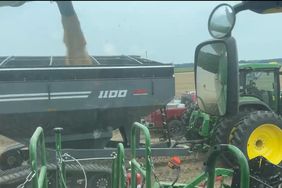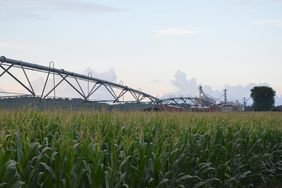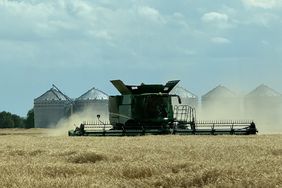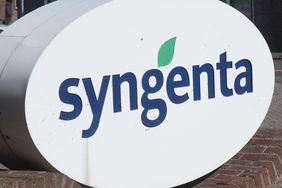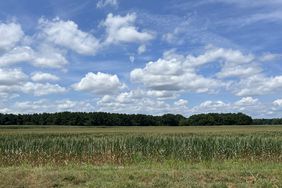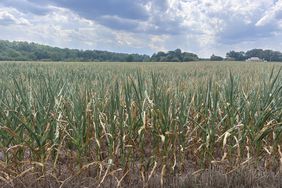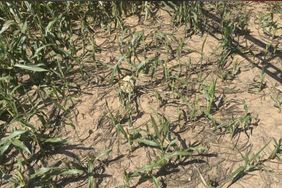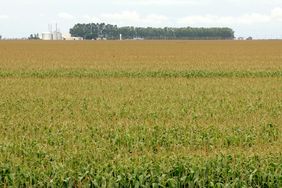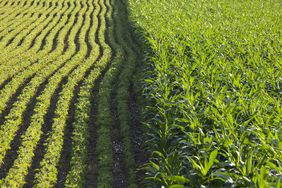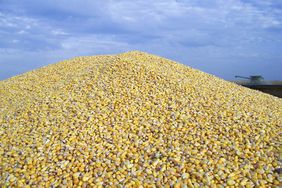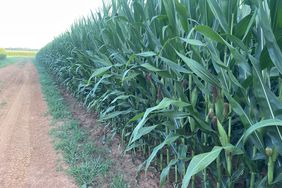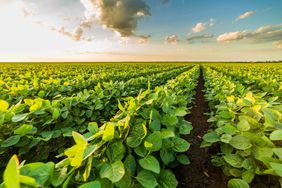:max_bytes(150000):strip_icc()/102491782-1-fedee2c68eb34674bc201d78298a4f79.jpg)
One of agriculture's leading disruptors is setting up framework to help link farmers using sustainable agriculture practices with food ingredient companies seeking to improve their carbon footprint.
Farmers Business Network on September 1 launched the GRO Network, which provides technology and services that help members score their carbon footprint and market grain grown in a more sustainable fashion. The GRO Network also helps link these low-carbon grains with end users using a new software platform, says Devin Lammers, chief executive officer of GRO Network.
"We've recognized that farmers are putting in investments to be more sustainable, and consumers are demanding products grown more sustainably," Lammers says. "FBN has built the structure to connect those two realities."
GRO Network enables comprehensive environmental transparency, and supports a market for premium, environmentally-scored grain. GRO Network also provides buying intelligence software that directly connects farmers with consumer packaged goods companies, animal feed providers, biofuel makers, and the world's other major grain buyers.
POET, the world's largest producer of biofuels has joined GRO Network as a key customer in the market for verifiable Low-Carbon Grain.
"Family farms have already invested the time, innovation, and sweat equity to develop the regenerative practices required to grow Low-Carbon Grain," said Amol Deshpande, CEO and cofounder of FBN. "With GRO Network, the efforts of farmers as well as food and feed companies, biofuel makers, and ordinary consumers to reduce carbon emissions just got a huge boost."
Transparency in the agriculture supply chain starts with data direct from the field.
Lammers says FBN's GRO Network is a facilitator between farmer and grain buyer. Farmers share information on their cultivation practices – including fertilizer applications, tillage, and cover cropping – with GRO Network, which is processed with artificial intelligence that leverages FBN's 240 million acre-events of real-world farm data. The GRO Network validates and distills the practices into a single farm-level score. This single score – which is the only information shared between GRO Network and prospective buyers – informs the buyer to then source premium grain as well as build programs to meet unique sustainability goals, while protecting farmers' data privacy.
Gathering the information should be fairly simple, as most farmers already track field operations through a number of data tools. Therefore, information collection should be straightforward, Lammers says. "The beauty is, the infrastructure is already in place on the farm."
Verifiable Low-Carbon Grain will allow agricultural processors and food companies to meet their own significant emission goals. Policymakers will be able to evaluate a precise, farm-level carbon-intensity score to more accurately measure the GHG reduction of biofuels for low-carbon fuel policies. GRO Network will help these companies embed the required carbon traceability into their supply chains, all within the current government policy framework.
"At POET we know that agriculture is the key to combating climate change, and we want to support farmers who share our mission to be good stewards of the earth by using environmentally friendly practices," said POET founder and CEO Jeff Broin. "We are excited about the potential of the GRO Network to promote sustainable agriculture and utilize the resulting Low-Carbon Corn to produce even greener bioethanol and bioproducts."
GRO Network is focusing initially on carbon abatement, which, based on GRO Network pilots, can reduce grain emissions by up to 50%, while increasing farm revenues at the same time. It relies on proven, existing science and robust FBN analytics to measure the benefits of conservation activities on the farm, providing immediate, low-risk solutions to reduce the environmental impact of the agriculture supply chain.
Lammers says FBN will not contract grain. Instead, programs the company cultivates with end users like POET will handle transactions with farmers. "GRO Network will get out of the way from that transaction," he says.
FBN began development of GRO Network close to two years ago in order to allow fuel, food, and feed companies to work alongside farmers to accelerate the adoption of regenerative agricultural practices that deliver the biggest impact. GRO Network incentivizes sustainable conservation and soil health practices by producers, ensuring a consistent supply of high-quality, Low-Carbon Grain for buyers.
To enhance the immediate value to growers and buyers alike, GRO Network will provide free access to some of the fundamental elements of the technology, including a bid/offer platform, web hosting, and integration to a grower account in the FBN app. Farmers interested in participating in GRO Network can visit here to learn more. Farmers can voluntarily participate in the environmental footprint assessment on that site.
